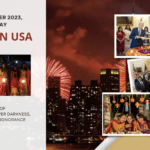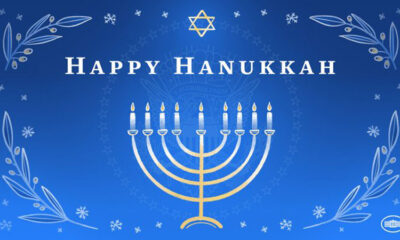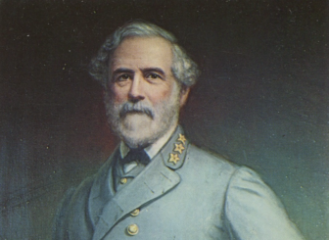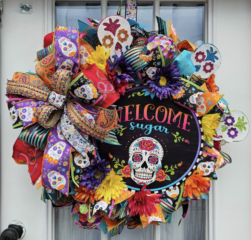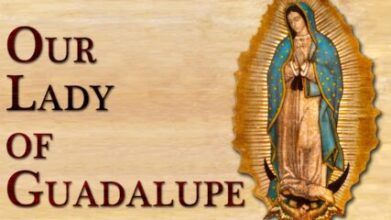Hanukkah, also spelled Chanukah, is a joyous and meaningful Jewish holiday celebrated over eight days and nights. Often referred to as the Festival of Lights, Hanukkah holds a special place in Jewish tradition as it commemorates the rededication of the Holy Temple in Jerusalem during the second century BCE. The holiday’s centerpiece is the lighting of the menorah, a nine-branched candelabrum, with a new candle added each night. Hanukkah is a time of family gatherings, delicious foods like latkes (potato pancakes) and sufganiyot (jelly-filled doughnuts), and the exchange of gifts. It symbolizes hope, perseverance, and the triumph of light over darkness, making it a cherished and widely observed holiday in the Jewish calendar.
In Year 2023, Hanukkah is on 8 December, Friday Type: Religious -Jewish holiday
The Story of Hanukkah
The story of Hanukkah dates back to the second century BCE when the Jewish people were living under the rule of the Seleucid King Antiochus IV. Antiochus imposed oppressive laws and sought to suppress Jewish religious practices, including desecrating the Holy Temple in Jerusalem. In response, a group of Jewish rebels known as the Maccabees led a spirited revolt. After three years of struggle, they succeeded in reclaiming the Temple and purifying it. The miracle of Hanukkah, as recounted in the Talmud, is that a single cruse of oil, enough to light the Temple’s menorah for just one day, miraculously burned for eight days(Miracle of the Oil). This event inspired the Festival of Lights, Hanukkah, during which Jews light the menorah for eight nights to celebrate the rededication of the Temple and the enduring spirit of resilience and faith.
The Miracle of the Oil
The central story of Hanukkah revolves around the rededication of the Second Temple in Jerusalem after its desecration by the Seleucid ruler Antiochus IV. When the Maccabees regained control of the Temple, they found only a small jar of oil, enough for one day. However, miraculously, the oil burned for eight days, giving them the time they needed to consecrate new oil.
The Triumph of Light
Hanukkah serves as a powerful reminder of the victory of the Jewish people over oppression and the importance of preserving their faith and traditions.
Celebrating Hanukkah in the USA
Hanukkah traditions in the United States are a blend of religious observance and cultural festivities. They reflect the enduring message of Hanukkah’s story.
The Menorah Lighting
The most iconic tradition of Hanukkah is the lighting of the menorah. Each day of the eight-day festival, an additional candle is lit on the menorah, along with the central, taller candle, known as the shamash, which is used to light the others. This ritual is often done in the evening, and it is followed by the recitation of blessings and songs.
Dreidel Game
The dreidel, a four-sided spinning top, is a popular Hanukkah game. Each side of the dreidel is marked with a Hebrew letter that stands for “A Great Miracle Happened There.” Players use coins or chocolate coins (gelt) and take turns spinning the dreidel to win or lose a portion of the pot.
Foods and Treats
Foods fried in oil, such as potato latkes (pancakes) and jelly-filled doughnuts (sufganiyot), are traditional Hanukkah treats, symbolizing the oil that miraculously burned for eight days. These delicious dishes are enjoyed during the holiday.
Gift Giving
In the United States, the custom of giving gifts has also become a part of Hanukkah celebrations. Children receive small gifts on each of the eight nights of Hanukkah, adding to the excitement and festive atmosphere.
Singing Hanukkah songs
There are many different Hanukkah songs that are sung during the holiday. Some of the most popular songs include “Ma’oz Tzur” and “O Hanukkah.”
Community Celebrations
Many Jewish communities in the USA host public Hanukkah celebrations, including candle lighting ceremonies, music, and cultural events. These events help share the significance of Hanukkah with a wider audience.
The Significance of Hanukkah
Hanukkah is a holiday that carries profound significance for Jews in the United States and around the world.
Religious Freedom
The holiday represents the fundamental principle of religious freedom and the resilience of the Jewish people in preserving their faith and traditions against adversity.
Family and Community
Hanukkah is a time for families and communities to come together, share joy, and reaffirm their connections with one another and their heritage.
Hope and Light
In a broader sense, Hanukkah symbolizes the universal themes of hope and light, values that resonate with people of all backgrounds and beliefs.
Hanukkah’ in Pop Culture
However, there are a number of notable examples of Hanukkah being referenced in popular media.
One of the most famous examples is Adam Sandler’s song “The Chanukah Song,” which was released in 1994. The song is a humorous and educational ode to the holiday, and it has become a popular Hanukkah staple for many families.
Other notable examples of Hanukkah in pop culture include:
- The Rugrats episode “A Rugrats Chanukah” (1996): This episode is widely considered to be one of the best Hanukkah-themed episodes of television ever made. It features the Rugrats learning about the holiday from their grandfather, Boris.
- The O.C. episode “The Chrismukkah That Almost Wasn’t” (2004): This episode features the character Seth Cohen celebrating a hybrid holiday called Chrismukkah, which combines Hanukkah and Christmas.
- The Glee episode “Glee, Actually” (2010): This episode features the character Puck singing a version of the Hanukkah song “O Hanukkah” with his half-brother, Jake.
- The film Night at the Museum: Secret of the Tomb (2014): This film features the character Teddy Roosevelt helping to save Hanukkah from a villain who is trying to erase the holiday from history.
In addition to these specific examples, Hanukkah has also been referenced in passing in a number of other TV shows, movies, and songs. For example, in the TV show Friends, the character Ross Geller once refers to Hanukkah as “the one with the candles.”
Hanukkah in the USA is not just a Jewish holiday; it is a celebration of light, resilience, and the enduring human spirit. As Jewish families come together to light the menorah, spin the dreidel, and share special meals, they also share a message of hope and the triumph of goodness over adversity. In the melting pot of America, Hanukkah stands as a shining example of the enduring significance of cultural and religious traditions in a diverse and vibrant society.
FAQs on Hanukkah
Q1. What is Hanukkah?
A. Hanukkah, also spelled Chanukah, is an eight-day Jewish holiday that commemorates the rededication of the Holy Temple in Jerusalem after a successful Jewish revolt against oppressive rulers.
Q2. When does Hanukkah begin and end?
A. Hanukkah typically begins on the 25th day of the Hebrew month of Kislev, which usually falls in December. It lasts for eight days and nights.
Q3. Why is Hanukkah called the “Festival of Lights”?
A. Hanukkah is known as the Festival of Lights because of the central custom of lighting the menorah, adding one candle each night, to celebrate the miracle of the oil that lasted for eight days.
Q4. What is the significance of the menorah in Hanukkah?
A. The menorah is a nine-branched candelabrum used during Hanukkah. It symbolizes the miracle of the oil and the eight days the menorah remained lit, as well as the enduring Jewish faith.
Q5. Are there any special prayers or blessings for Hanukkah?
A. Yes, there are specific blessings and prayers associated with lighting the menorah. The most well-known is the Hanukkah blessing, “Blessed are You, O Lord our God, King of the universe, who has sanctified us with His commandments and commanded us to kindle the Hanukkah lights.”
Q6. What is a dreidel, and how is it used in Hanukkah celebrations?
A. A dreidel is a spinning top with Hebrew letters on its sides. It is often used in a Hanukkah game. Each letter stands for a Hebrew word, and players can win or lose tokens based on the letter that lands face up.
Q7. What foods are traditionally eaten during Hanukkah?
A. Traditional Hanukkah foods include latkes (potato pancakes) and sufganiyot (jelly-filled doughnuts) fried in oil to symbolize the oil that lasted for eight days. Dairy foods are also sometimes consumed.
Q8. Do Jewish people exchange gifts during Hanukkah?
A. Yes, it is a common tradition to exchange gifts during Hanukkah, especially among children. While the tradition of gift-giving is not as elaborate as that of Christmas, it adds to the festive spirit of the holiday.
Q9. Is Hanukkah a major Jewish holiday?
A. Hanukkah is not one of the biblically mandated Jewish holidays but is still widely celebrated and holds significant cultural and historical importance. It is considered a minor holiday.
Q10. What are some other customs and traditions associated with Hanukkah?
A. Other Hanukkah traditions include playing the dreidel game, singing Hanukkah songs, giving to charity, and reading the Hanukkah story from the Book of Maccabees.
Q11. Is Hanukkah always on the same dates in the Gregorian calendar?
A. No, Hanukkah is based on the Hebrew calendar, so its dates in the Gregorian calendar vary from year to year.
Q12. What is the message or lesson of Hanukkah?
A. Hanukkah conveys the themes of religious freedom, resilience, and the triumph of light over darkness. It serves as a reminder of the importance of preserving cultural identity and values.
